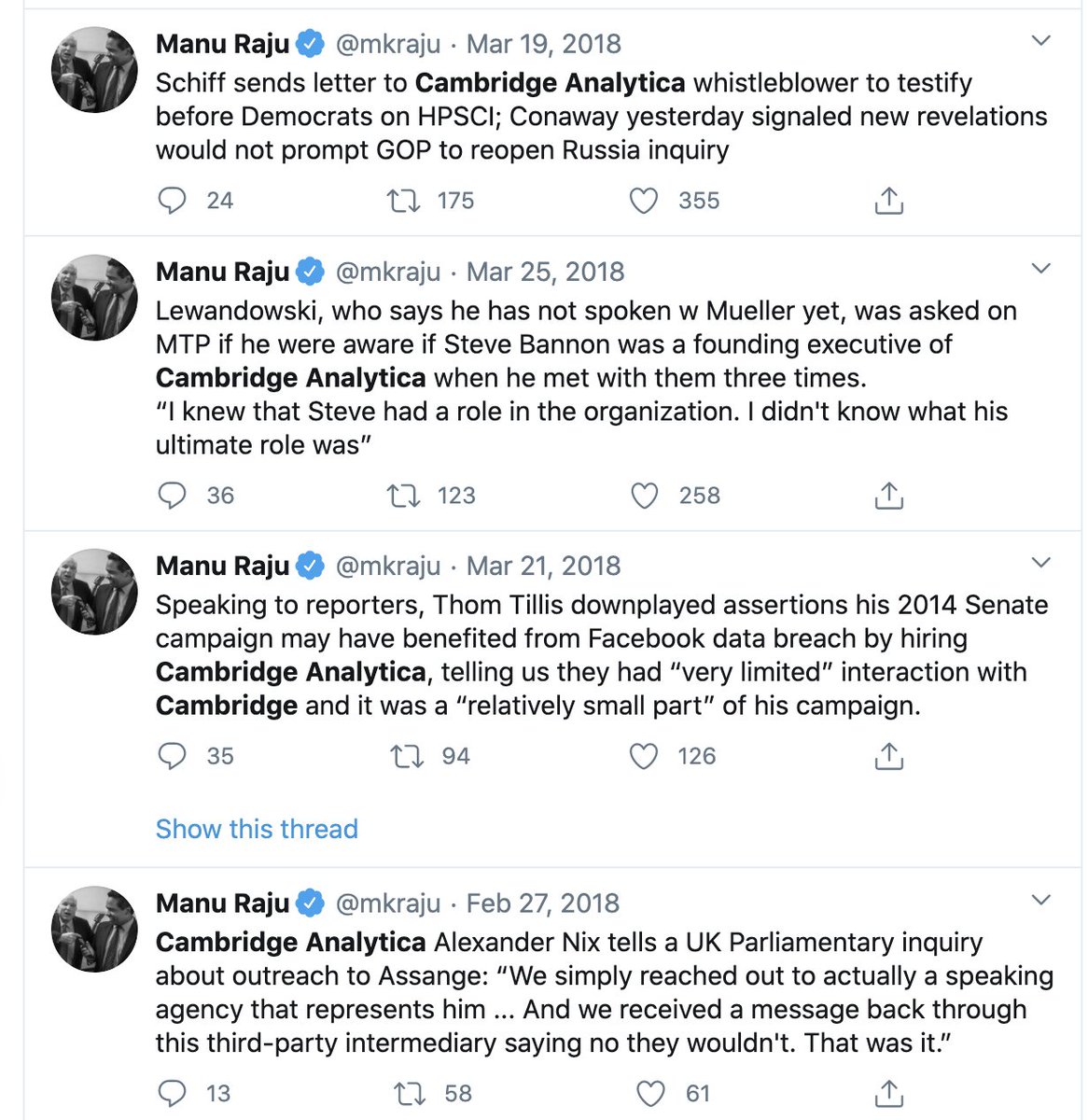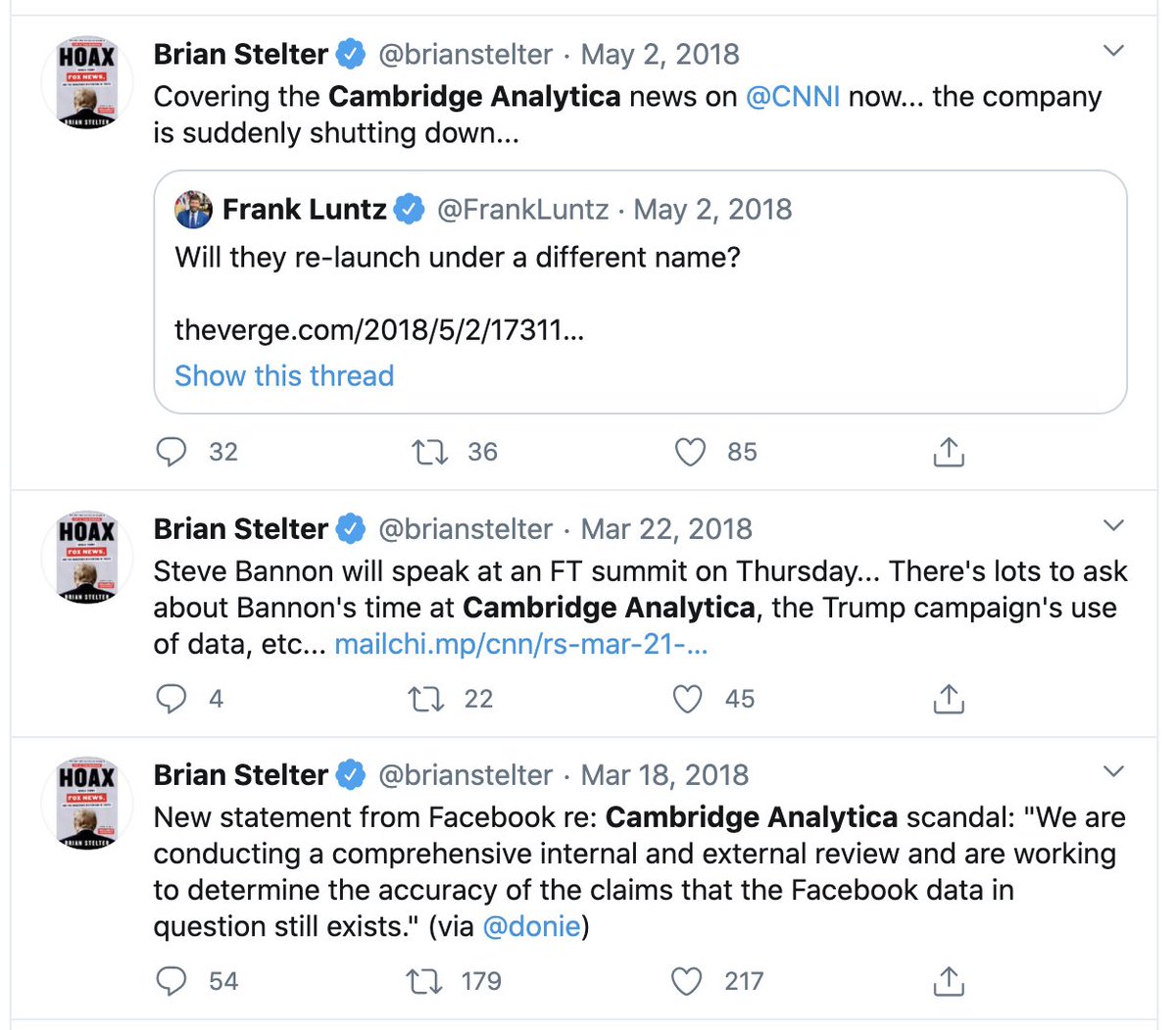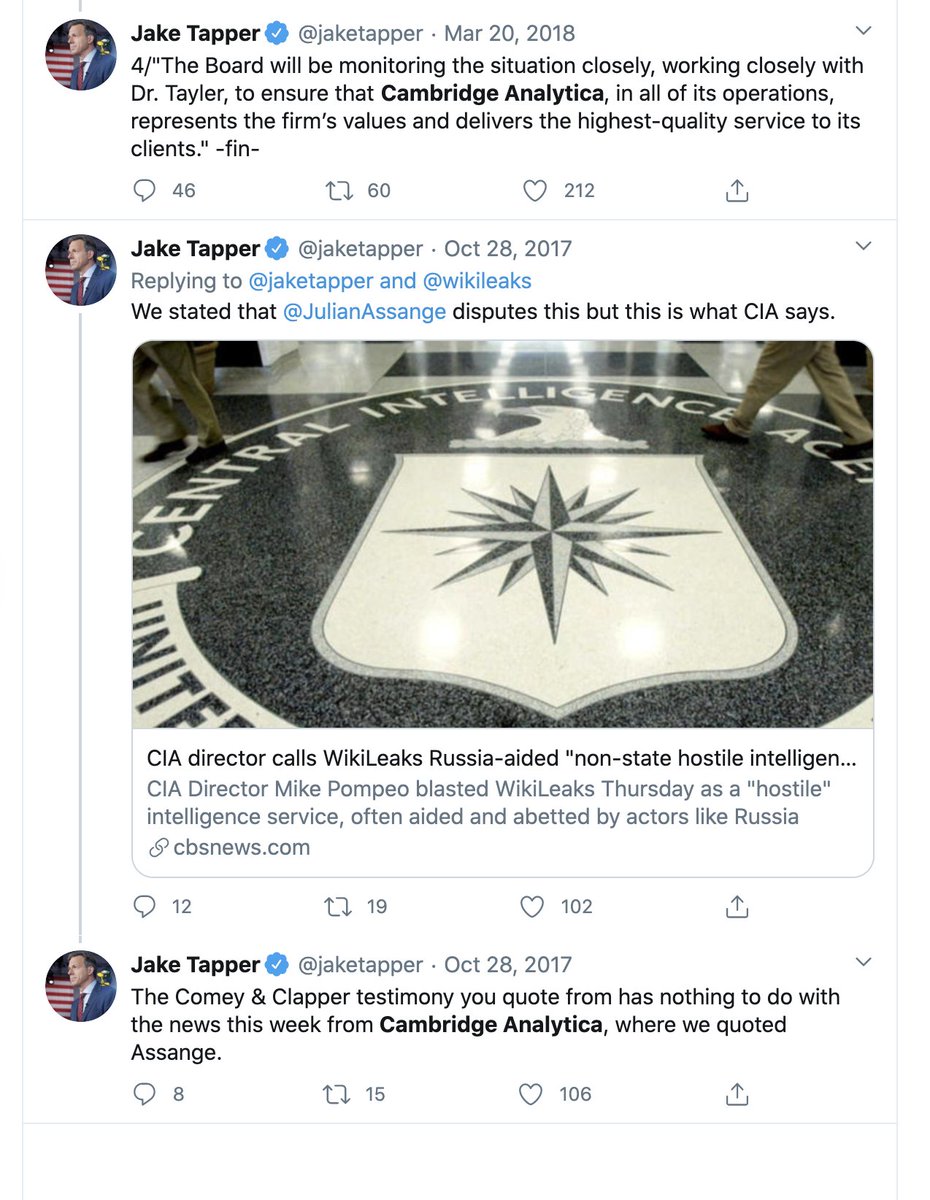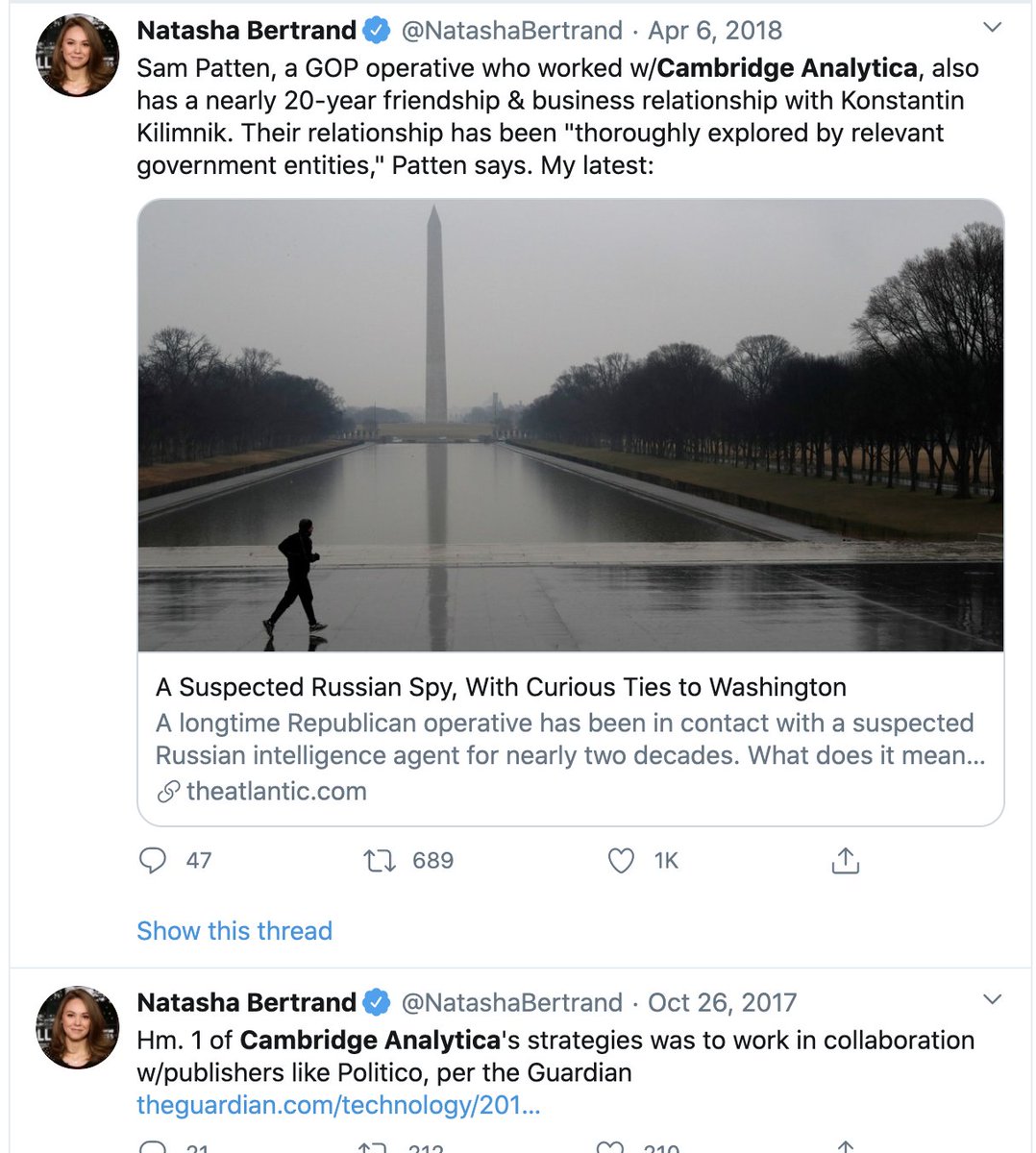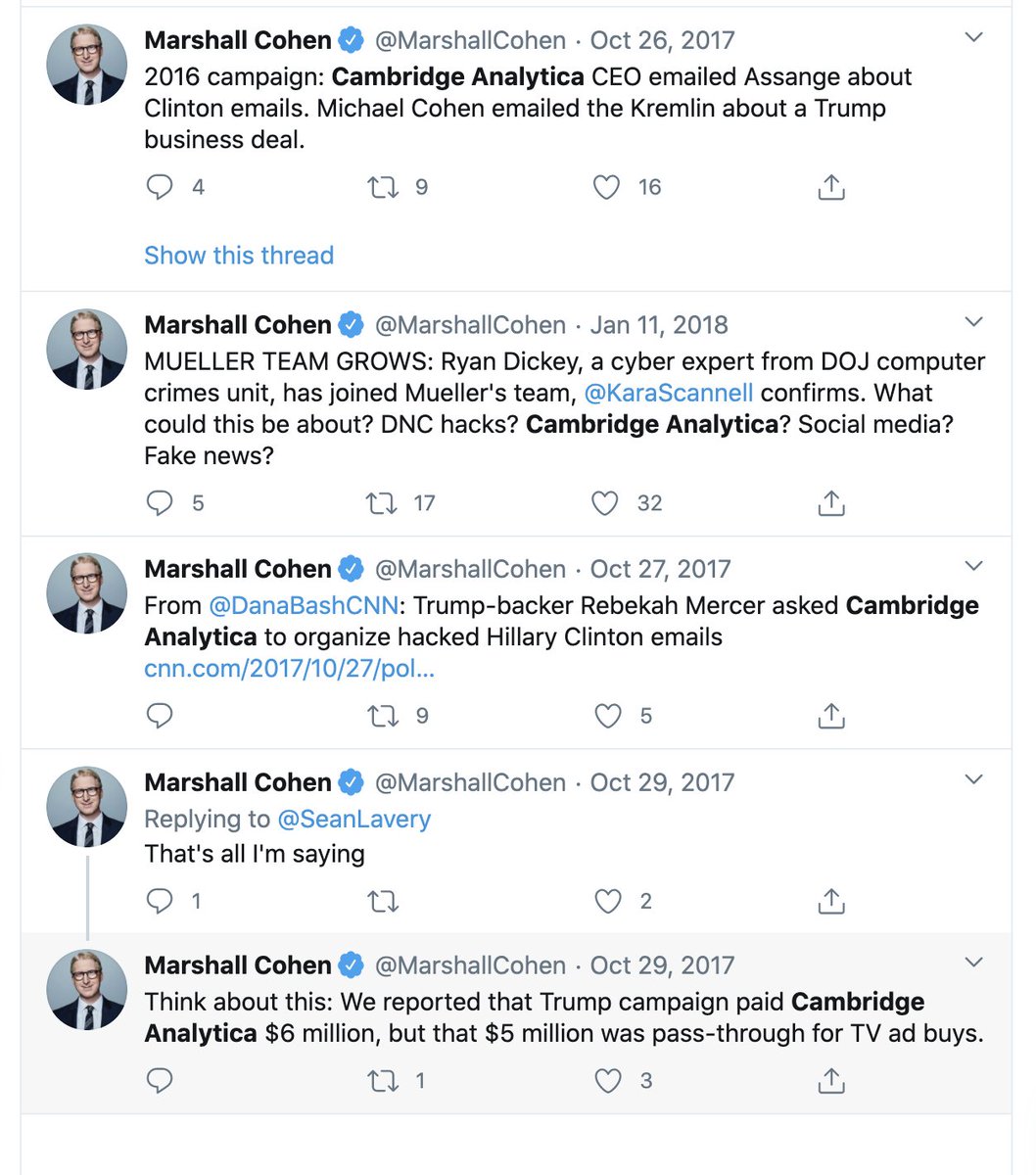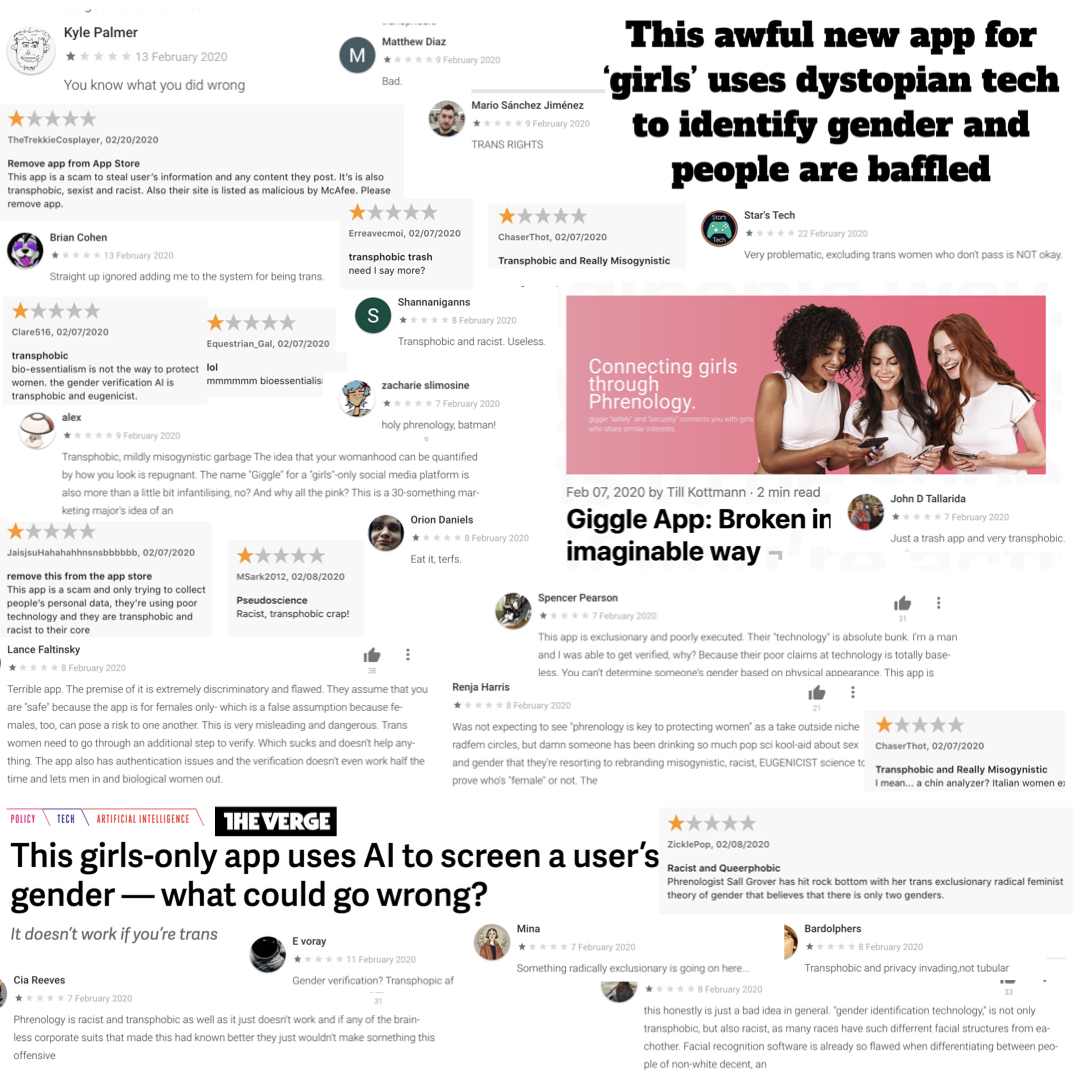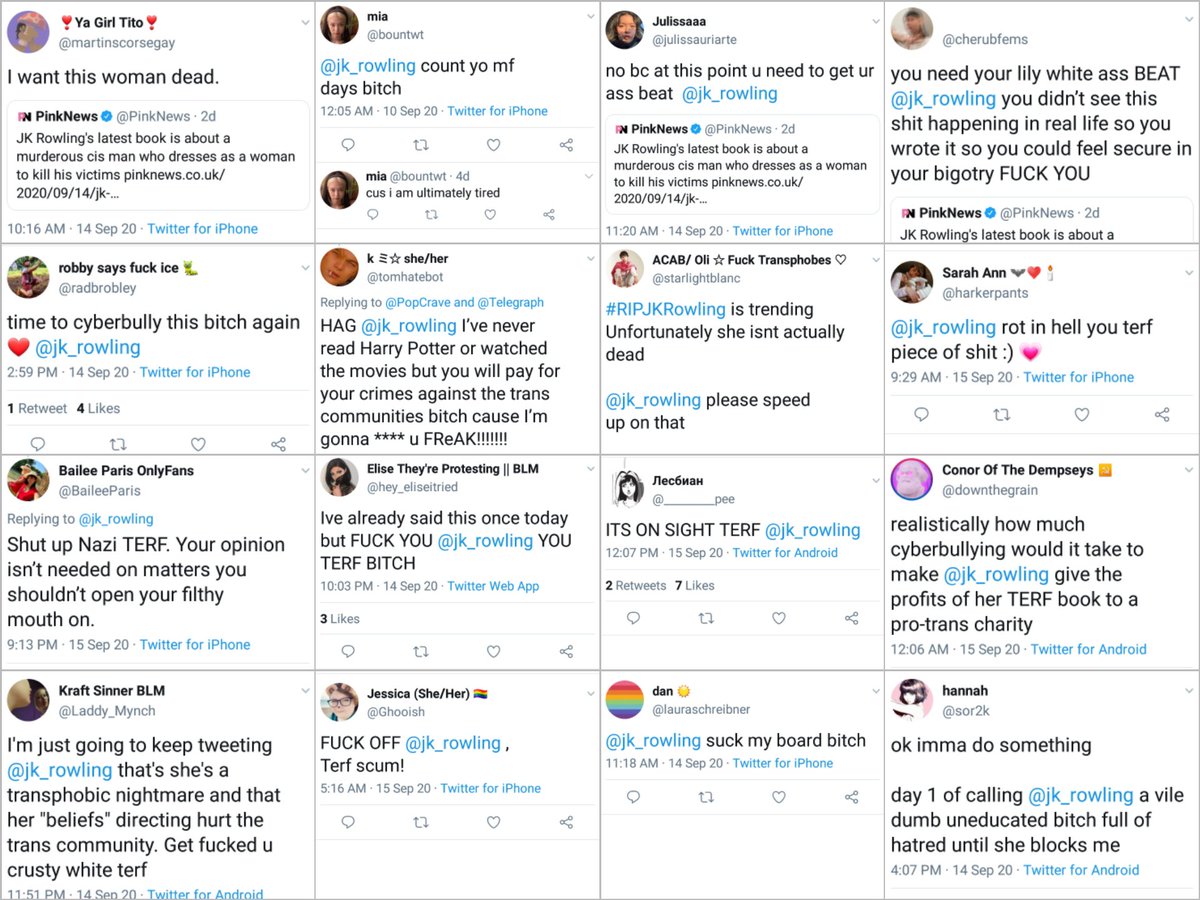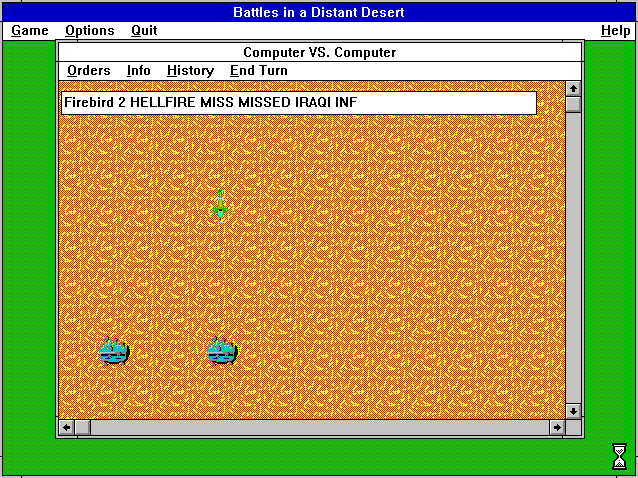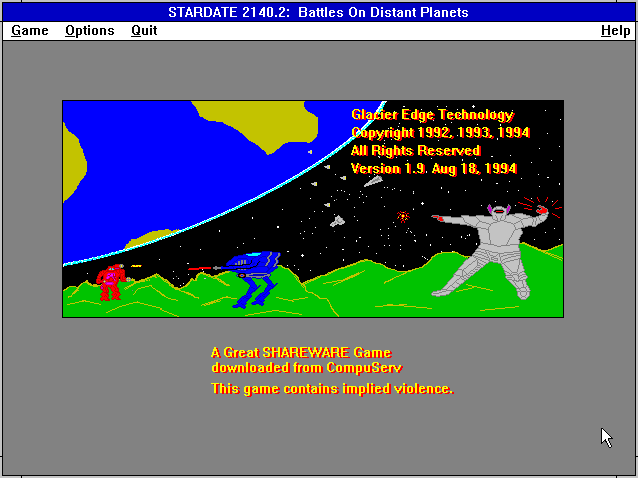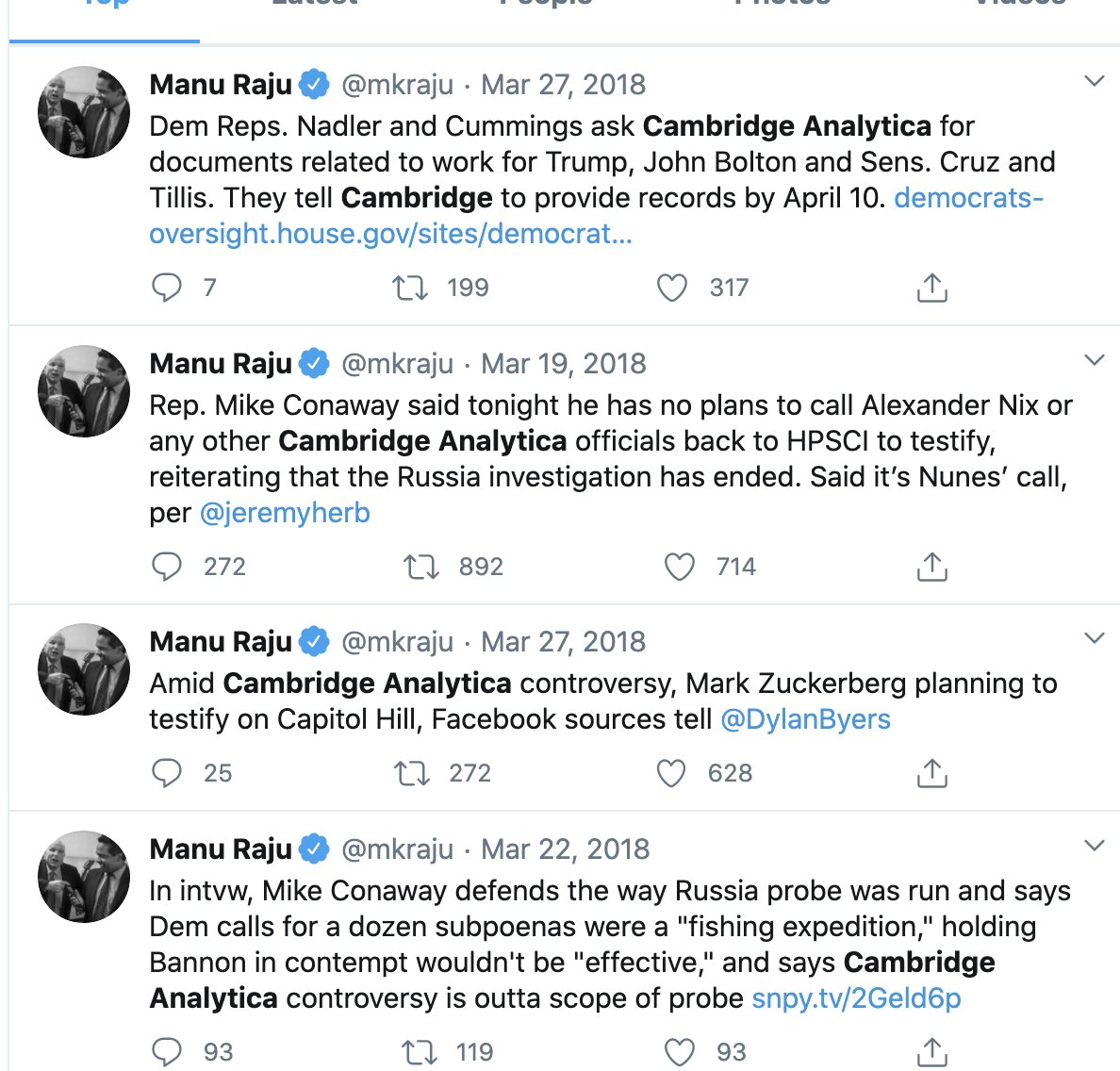
Don't know if anyone at CNN is covering debunking of the Cambridge Analytica whistleblower panic. This is what it looked like back in 2018.
More from Social media
Thread 🧵
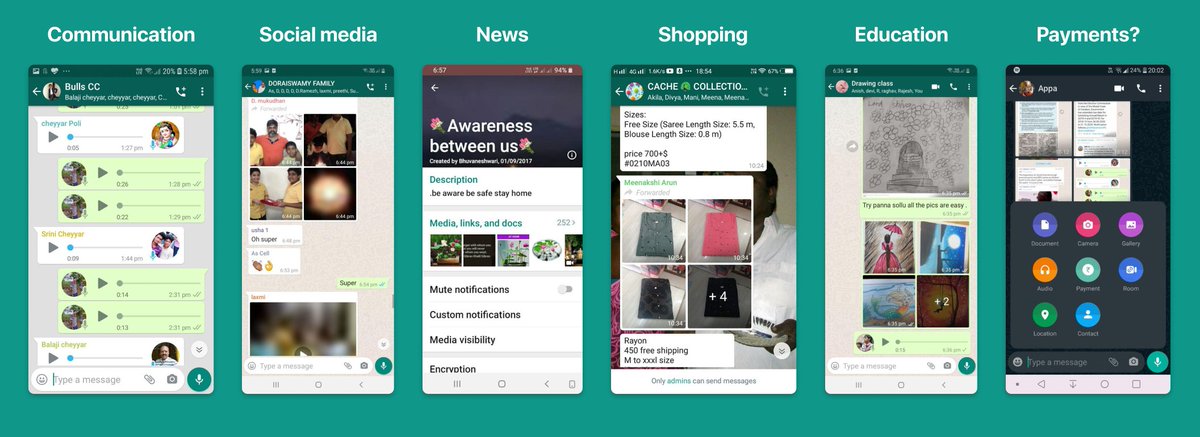
Below are a few insights I gathered while researching on how Gen-X use WhatsApp as a part of @10kdesigners Cohort!
Okay, let's go!
1/x
Gen-X? Who are they?
Gen-X (short for Generation X) are basically people with birth years around 1960–1980. That’s basically our (millennials’) parents!
2/x
Check out this detailed case study by @zainab_delawala
📮 Communication/Community
This is the primary feature of WhatsApp.
This feature is the entry point for most of the Gen-X, they come to WhatsApp to communicate and engage with small
Can a movie (96') change how people use an app (Whatsapp)?
— Rajesh Raghavan (@rajeshraghavan_) October 1, 2020
YES. It can.
Let's see how\U0001f440 pic.twitter.com/BV0scQ2KEc
- WhatsApp group is one of the most used features by Gen-X. Most of the message more on groups than on private chats.
- Forward messages received mostly are written in vernacular languages. They are all well scripted.
4/x
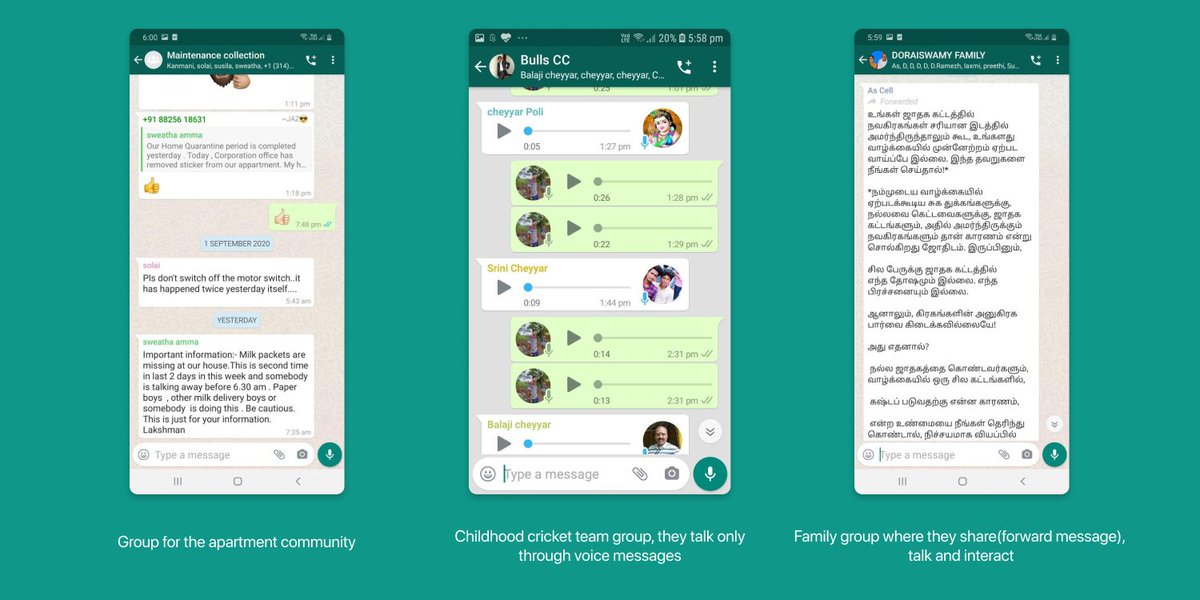
The goal?
Learn how to craft interesting threads, and grow a following. It (mostly) worked.
- New followers: +2.5K (+100% MoM)
- Top thread: 373K impressions
- Top tweet: 2.5K likes
Here's what I learned. Quick thread 👇👇
To start, here's the most popular thread I've written.
Thoughts on what made it work, below.
Nikola Tesla was the greatest inventor of his era. He died penniless and alone, swindled by both Thomas Edison and JP Morgan.
— Mario \U0001f98a (@mariodgabriele) September 2, 2020
A thread \U0001f447\U0001f447\U0001f447 pic.twitter.com/80Gco1e6uq
1. Quality
The threads that performed best were (usually) the ones I put the most effort into.
One example is this one about Jeff Bezos's origins. I spent hours researching and drafting it.
It's worth taking the time to craft your
[Story time]
— Mario \U0001f98a (@mariodgabriele) July 30, 2020
Yesterday, Jeff Bezos testified in front of Congress. It was almost exactly 15 yrs ago that Amazon introduced itself to the world.
We have all heard some version of his story. But in investigating his childhood, I was surprised to find much that has gone unshared. pic.twitter.com/CDaIAA0Fzj
2. Timeliness
Capitalizing on the news can be one way to expand viewership.
When Fornite launched its #FreeFortnite campaign, I wrote this thread.
At the time, it was my 2nd best performing thread. It also introduced me to the lovely
Fortnite is standing up to Google and Apple.
— Mario \U0001f98a (@mariodgabriele) August 13, 2020
They're offering 20% discounts to players that buy digital currency in the app, bypassing the payment systems of Big Tech.
This is a thread about the game's humble beginnings. \U0001f447
(All likes + RTs appreciated! \U0001f64f) pic.twitter.com/Zg5Lr3hDRu
3. Narrative Arc
Have a clear start and end in your mind.
I made this mistake with a few Amazon threads. I thought because my first one worked, I could keep the story going. But they didn't have as clear a narrative arc and were much less popular.
A book about lichen saved Amazon from going out of business.
— Mario \U0001f98a (@mariodgabriele) August 10, 2020
A thread \U0001f447 pic.twitter.com/kgfmBf4Dsj
You May Also Like
make products.
"If only someone would tell me how I can get a startup to notice me."
Make Products.
"I guess it's impossible and I'll never break into the industry."
MAKE PRODUCTS.
Courtesy of @edbrisson's wonderful thread on breaking into comics – https://t.co/TgNblNSCBj – here is why the same applies to Product Management, too.
"I really want to break into comics"
— Ed Brisson (@edbrisson) December 4, 2018
make comics.
"If only someone would tell me how I can get an editor to notice me."
Make Comics.
"I guess it's impossible and I'll never break into the industry."
MAKE COMICS.
There is no better way of learning the craft of product, or proving your potential to employers, than just doing it.
You do not need anybody's permission. We don't have diplomas, nor doctorates. We can barely agree on a single standard of what a Product Manager is supposed to do.
But – there is at least one blindingly obvious industry consensus – a Product Manager makes Products.
And they don't need to be kept at the exact right temperature, given endless resource, or carefully protected in order to do this.
They find their own way.
Like company moats, your personal moat should be a competitive advantage that is not only durable—it should also compound over time.
Characteristics of a personal moat below:
I'm increasingly interested in the idea of "personal moats" in the context of careers.
— Erik Torenberg (@eriktorenberg) November 22, 2018
Moats should be:
- Hard to learn and hard to do (but perhaps easier for you)
- Skills that are rare and valuable
- Legible
- Compounding over time
- Unique to your own talents & interests https://t.co/bB3k1YcH5b
2/ Like a company moat, you want to build career capital while you sleep.
As Andrew Chen noted:
People talk about \u201cpassive income\u201d a lot but not about \u201cpassive social capital\u201d or \u201cpassive networking\u201d or \u201cpassive knowledge gaining\u201d but that\u2019s what you can architect if you have a thing and it grows over time without intensive constant effort to sustain it
— Andrew Chen (@andrewchen) November 22, 2018
3/ You don’t want to build a competitive advantage that is fleeting or that will get commoditized
Things that might get commoditized over time (some longer than
Things that look like moats but likely aren\u2019t or may fade:
— Erik Torenberg (@eriktorenberg) November 22, 2018
- Proprietary networks
- Being something other than one of the best at any tournament style-game
- Many "awards"
- Twitter followers or general reach without "respect"
- Anything that depends on information asymmetry https://t.co/abjxesVIh9
4/ Before the arrival of recorded music, what used to be scarce was the actual music itself — required an in-person artist.
After recorded music, the music itself became abundant and what became scarce was curation, distribution, and self space.
5/ Similarly, in careers, what used to be (more) scarce were things like ideas, money, and exclusive relationships.
In the internet economy, what has become scarce are things like specific knowledge, rare & valuable skills, and great reputations.

